Third Policy Local Meeting
On the 28th of March 2016, and under the policy accelerator pillar of SHAAMS ENPI CBC Med project, and in collaboration with The Order of Engineers & Architects in Beirut, The Committee of Energy & Sustainability and the Arab Renewable Energy Commission (AREC), BIAT arranged the third policy local meeting entitled: “How to address legal challenges for large renewable and Solar IPP projects development in Lebanon”. The meeting took place at the premises of the “Order of Engineers and Architects in Beirut.
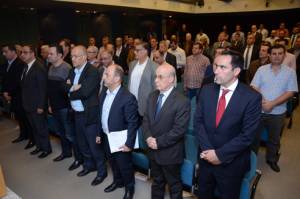
Eng. Wissam Tawil from OEA representing the president of the syndicate started the session by welcoming the attendees and wished that the workshop will reach a serious and meaningful recommendations for the development of renewable energies highlighting that the OEA will support every initiative aiming at enhancing the sustainability of the projects and to embrace efforts to develop clean energy activities.
Afterward, the workshop moderator Eng. S. Mohamad Alaya from AREC emphasized on the importance of the development of renewable energies giving examples about success stories in the Arab world in terms of renewable energy adoption such as Morocco and the United Arab Emirates.
Then, the general Secretary of the Higher Council for Privatization Dr. Ziad Hayek focused on the importance of the partnership between the public and private sector for the development of infrastructure projects, especially renewable energy and developing risk management mechanism and legal framework that protect the rights of all stakeholders and attract investors.
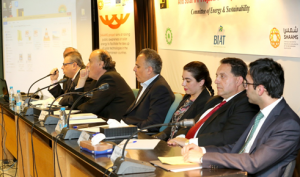
Subsequently, 2 panels took place. The first panel hosted the director of planning at the Council for Development and Reconstruction, Dr. Ibrahim Chahrour who focused on the need to build the capability of the public sector to be able to keep up with the PPP and fulfill the role of the monitoring the appropriate implementation of the development projects. Then, the Eng. Ralph Estefan from KAFALAT explained about the available financial mechanisms for RE mega projects and the need to develop suitable fed-in tariff schemes. He suggested to finance the RE projects through specialized regional funds able to mitigate risks and ensure the transfer of best practices along with the development of the appropriate legal framework. Dr. Jalal Halawani from the Lebanese University stressed the need to take into consideration the environmental aspects within the process of the power generation, and the significance of relying on gas instead of heavy fuel in electricity generation as intermediary solution.
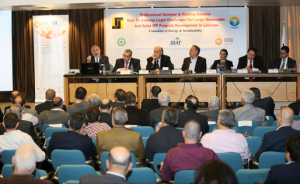
The second panel included the following interventions:
Dr. Mohammed Hammoud from CDR presented the Australian case in of renewable energy adoption and the need to develop an entity dedicated to promote investment in the renewable energy sector and announced the willingness of CDR to invest in the RE sector after developing a holistic legal framework .
Then engineer Youssef Ghantous LSES president, stressed on the significance of promoting net metering scheme and trying to reform it in order to overcome some shortages due mainly to the lack of knowledge in EDL employees.
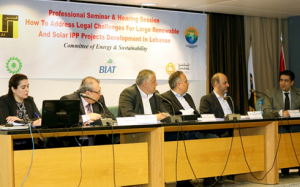
Finally, a Q&A session took part where valuable interventions were made specifically form the Eng. George Andrew representing FransaBank, where he showed the bank’s interest to invest in renewable energy sector and their aim to become the leader in mega renewable energy projects after adopting a suitable legal framework.
Then Judge Hasan el Shami explained how few environmental projects are suffering from the shortage of legal mechanism.
It’s worth to mention that the position paper developed by SHAAMS project was distributed to the participants in the purpose of getting their feedback/ comments. Then, a throughout discussion took place and a noticeable appreciation for the suggested road map to promote solar energy in Lebanon was noticeable.
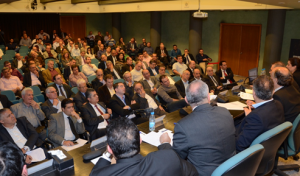
The final version of the position paper, after taking into consideration the participants’ comments, will be published as the seminar output recommendations on OEA website.
